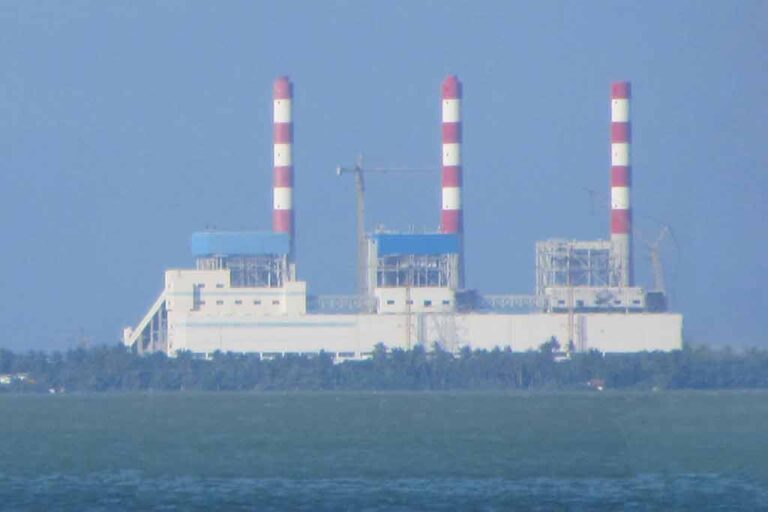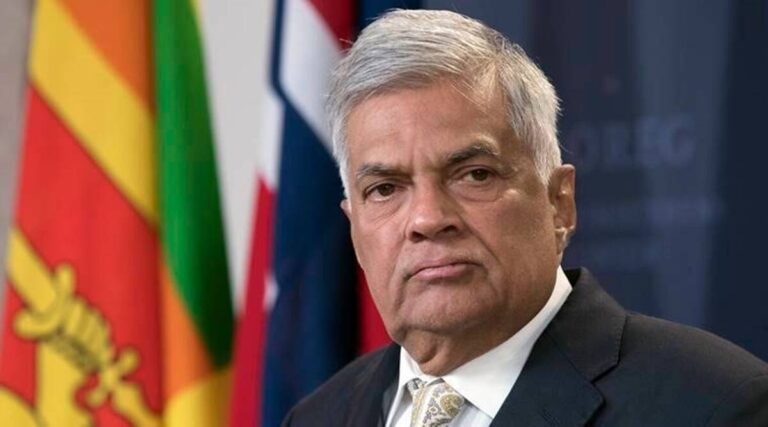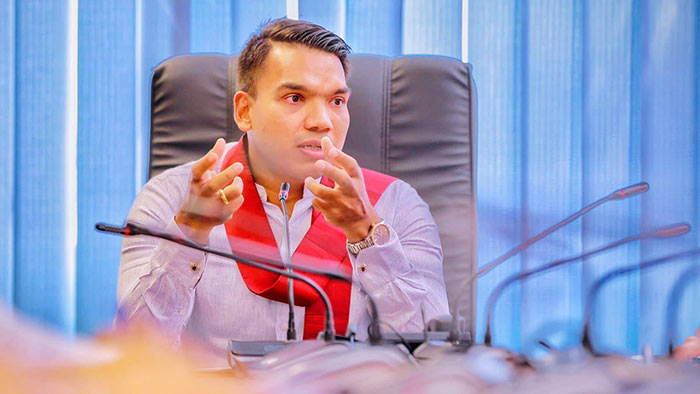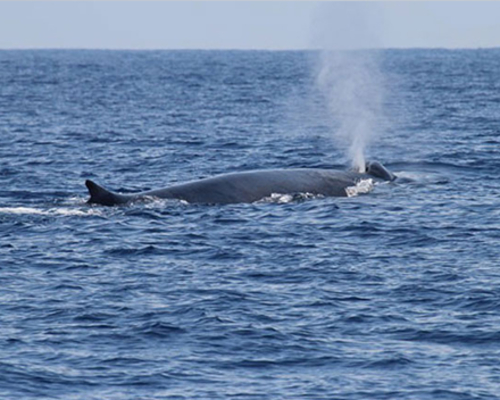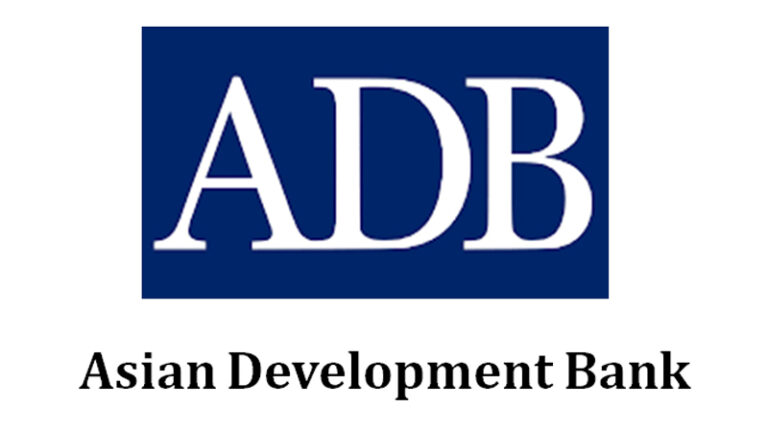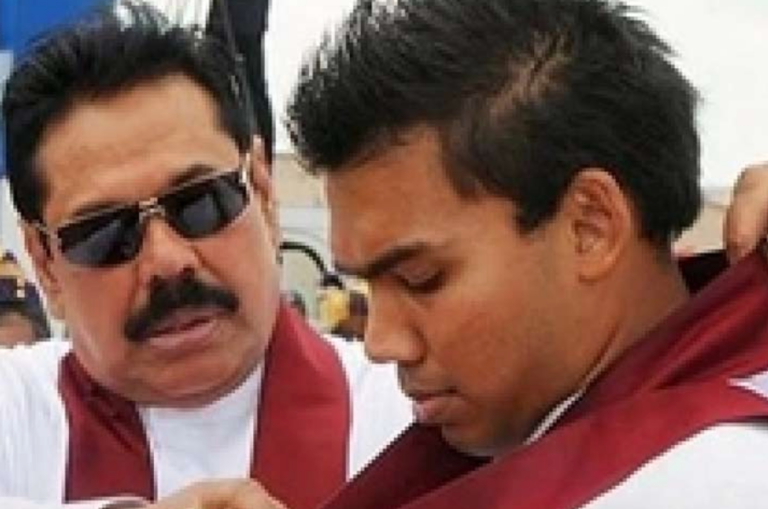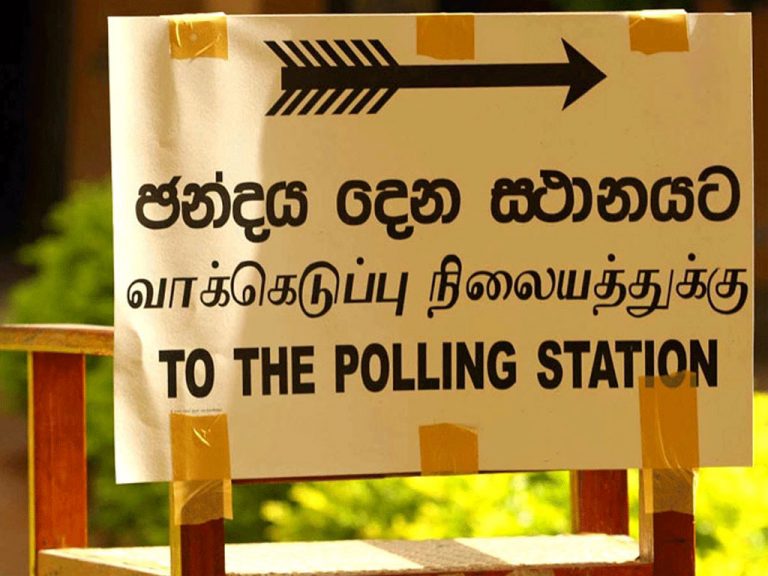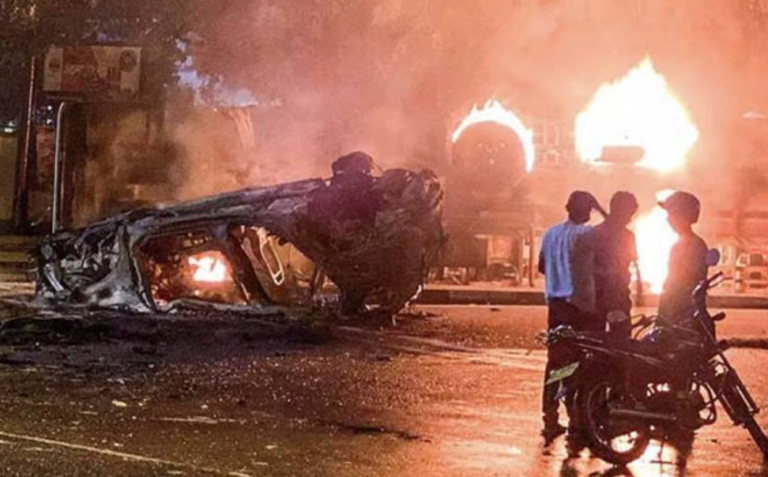The outgoing Russian Ambassador to Sri Lanka Ambassador Yury Materiy for his part, pledged to do his utmost to foster bilateral relations between the two countries even though he is leaving Sri Lanka after completing his tenure.
President Materiy, who has ended his term in Sri Lanka, said that he will continue to work to strengthen the relations with Sri Lanka.
He further stressed the need to enhance ties and develop the tourism industry between the two countries.
He expressed these views when he called on President Ranil Wickremesinghe at the Presidential Secretariat recently..
President Wickremesinghe thanked Ambassador Materiy for his service rendered to Sri Lanka as the Ambassador of Russia.
Sri Lanka has reached out to Russia for assistance notwithstanding the stringent sanctions thrashed out by the US and EU against the latter.
Colombo is keen to resume flight services with Russia with the hope of boosting tourist inflow.
The Russian state-owned carrier Aeroflot suspended operations some times back after its flight carrying 191 passengers and 13 crew members was not allowed to take off from Colombo’s Bandaranaike International Airport on account of a payment dispute.
Sri Lanka, which is amid the worst economic crisis since its independence, has also asked Russia to provide fuel to tide over the situation .
Russia has also expressed support towards Sri Lanka in bilateral and multilateral fora.
The President stressed the need of further consolidating cooperation, with particular attention to enhancing business ties, tourism and connectivity.
Notably, this year marks the 65th anniversary of establishing diplomatic relations between Russia and Sri Lanka.
The two countries confirmed commitment to developing further friendly bilateral ties in the context of the 65th anniversary of diplomatic relations between the two countries being marked this year and agreed to continue contacts at various levels.
He also wished President Wickremesinghe the strength to take Sri Lanka out of the economic crisis and establish a stable country.
President Wickremesinghe wished Ambassador Yury Materiy success in all his future undertakings and thanked him for all the assistance rendered during his tenure in Sri Lanka.
Outgoing Russian Ambassador to Sri Lanka pledges to foster bilateral relations
Coal supply in severe crisis..!
The supplier who tendered the lowest bid for coal supply in compliance with the government’s procurement policy has informed that it will not supply coal stocks to Sri Lanka until the allegations levelled against it are legally cleared.
The supplier has informed the matter during the discussion held between its representatives and the officials of the Ceylon Coal Company two days ago (09), revealed Energy Minister Kanchana Wijesekara.
The situation has led to discussing alternate proposals for the procurement of coal to be implemented until the legal matter is solved, Wijesekaara said a social media note.
The tender for the purchase of 4.5 million tonnes of coal was awarded to the lowest bidder, Blacksand Commodities, a company in Dubai, on August 25, 2022 and the deal was accused of being corrupt by a number of parties, whilst several others had taken legal action against the deal, driving the procurement of coal into a severe crisis.
The existing coal stocks in Sri Lanka suffice for until October 20, and the occurrence of a deep power crisis due to the shut down of the Norochcholai Power Plant may be inevitable, can coal not be procured before then.

MIAP
SL President intervenes to clear obstacles blocking Indian funded projects
President Ranil Wickremesinghe has instructed officials to clear obstacles blocking the progress of Indian funded projects in Sri Lanka.
He advised officials to immediately revise circulars if it impedes the implementation of development projects.
It has been observed that the Mannar-Pooneryn wind power plants granted to Adani Green Energy Limited, the West Container Terminal in which Adani Ports has a controlling stake; and the proposed joint venture solar power plant in Sampur with India’s National Thermal Power Corporation are among the projects New Delhi was keen to fast-track.
According to informed sources ,it was unlikely that more credit lines are to be secured from India for fuel, even though there could be a $1 billion swap but not for oil.India was also facing difficulties in procuring oil supplies, it added.
In the ongoing economic crisis, India has provided Sri Lanka with credit lines for fuel, fertilizer and essential commodities worth US$ 3.5 billion.
India’s support and soft loans to the tune of $3 billion to Sri Lanka without any conditions are simply to ease the country’s crisis situation.This has made Sri Lanka meet some of the IMF’s conditionalities regarding the restructuring of debt.
India is presently working closely with US-Japan and Australia. These four countries work in close cooperation through the Quadrilateral Security Dialogue
The President chaired a discussion at the President’s Office recently to examine the progress of several development projects in the country based on Indian investment cooperation, the President’s Media Division said.
Deputy High Commissioner Vinod K. Jacob also participated at the discussion. The President instructed the ministry secretaries and government officials to take steps to resolve the obstacles that have arisen in the progress of several projects in Sri Lanka under Indian investments.
President Wickremesinghe explained the need to correct the provisions contained in the circulars issued periodically by previous governments if they hinder development.
President’s Chief of Staff and Senior Advisor on National Security Sagala Ratnayake, Secretary of the Ministry of Power and Energy Mapa Pathirana and other ministry secretaries and government officials attended the discussion.
Outgoing Russian Ambassador to Sri Lanka pledges to foster -bilateral relations
The outgoing Russian Ambassador to Sri Lanka Ambassador Yury Materiy for his part, pledged to do his utmost to foster bilateral relations between the two countries even though he is leaving Sri Lanka after completing his tenure.
President Materiy, who has ended his term in Sri Lanka, said that he will continue to work to strengthen the relations with Sri Lanka.
He further stressed the need to enhance ties and develop the tourism industry between the two countries.
He expressed these views when he called on President Ranil Wickremesinghe at the Presidential Secretariat recently..
President Wickremesinghe thanked Ambassador Materiy for his service rendered to Sri Lanka as the Ambassador of Russia.
Sri Lanka has reached out to Russia for assistance notwithstanding the stringent sanctions thrashed out by the US and EU against the latter.
Colombo is keen to resume flight services with Russia with the hope of boosting tourist inflow.
The Russian state-owned carrier Aeroflot suspended operations some times back after its flight carrying 191 passengers and 13 crew members was not allowed to take off from Colombo’s Bandaranaike International Airport on account of a payment dispute.
Sri Lanka, which is amid the worst economic crisis since its independence, has also asked Russia to provide fuel to tide over the situation .
Russia has also expressed support towards Sri Lanka in bilateral and multilateral fora.
The President stressed the need of further consolidating cooperation, with particular attention to enhancing business ties, tourism and connectivity.
Notably, this year marks the 65th anniversary of establishing diplomatic relations between Russia and Sri Lanka.
The two countries confirmed commitment to developing further friendly bilateral ties in the context of the 65th anniversary of diplomatic relations between the two countries being marked this year and agreed to continue contacts at various levels.
He also wished President Wickremesinghe the strength to take Sri Lanka out of the economic crisis and establish a stable country.
President Wickremesinghe wished Ambassador Yury Materiy success in all his future undertakings and thanked him for all the assistance rendered during his tenure in Sri Lanka.
Today, violence can only be solved by repression (VIDEO)
Former Minister Namal Rajapaksa addressing a rally yesterday (10) said had Mr. Gotabaya Rajapaksa enforced law against violence back then, the situation today could have been different.
“They’re speaking of a repression now. If a house was set on fire, the person responsible should be arrested. If a person was murdered on the road, had someone somehow influenced to commit violence and law was not enforced against them, discipline, my dear mother, father, brother and sister, can never be established in the country,” he said.
The eldest Rajapaksa son continued: “President Gotabaya Rajapaksa, I believe, could’ve done that then. But for some reason, that didn’t happen. Had President Gotabaya enforced law against those inciting violence, those spreading violence via social media to set fire, to commit murder, the situation today could’ve been different. But we’re pleased that President Ranil is serving that matter. There’s no problem with the ‘Aragalaya,’ but I have a problem with the protesters of that Aragalaya and the manner in which the Aragalaya was navigated. Today, there is no solution to violence other than repression.”
MIAP
Major shipping company adjusts ship routes to save Sri Lankan blue whales
The world’s largest shipping and logistics conglomerate, MSC Group, is adjusting its ship routeing south of Sri Lanka to reduce collision risk with endangered blue whales after environmental NGOs OceanCare and IFAW (International Fund for Animal Welfare) approached MSC Group to help protect these whales.
The decision means that transiting MSC container ships will now avoid an area where the majority of the northern Indian Ocean blue whales population are known to congregate.
The waters off the southern tip of Sri Lanka present a challenge to mariners because of the high risk of collisions with blue whales, whale watching boats and small fishing vessels.
Unusally for the species, Sri Lankan blue whales are found in these waters year round, and the current international shipping lanes off Dondra Head take ships right through the area with the most whales and whale watching activity.
“By making these small changes, MSC is making a significant difference for these endangered whales. Whales often die as a result of collisions and this population is at risk.
Ship strikes are both a conservation and a welfare problem, and even one whale being hit is one too many,” comments Sharon Livermore, Director of Marine Conservation at IFAW.
“Re-routeing is the key hope to turn the tide for blue whales off Sri Lanka. It also demonstrates to the Sri Lankan government that now is the time to take appropriate action and move the shipping lane out of blue whale habitat for all merchant vessels” states Nicolas Entrup, Director International Relations at OceanCare.
Scientific surveys of blue whale distribution conducted off Sri Lanka in the current shipping lanes and further offshore found that if shipping were to transit 15nm south (offshore) of the current routes, the risk of ship strikes to blue whales would be reduced by 95 percent.
The World Shipping Council, other key shipping industry organisations and the International Whaling Commission are all fully supportive of establishing a recognized shipping route further offshore, both to protect whales and to improve shipping safety.
However, calls to the Government of Sri Lanka have been unheeded to date. By choosing to transit further offshore, MSC is proactively putting the re-routeing option into practice, but the majority of shipping still transits through the whales’ core habitat.
In June, in response to outreach by IFAW and OceanCare, the German Shipowners Association (VDR) also called upon its members to re-route.
The next step is for the Sri Lankan government to bring forward a proposal to the International Maritime Organization to make the safer, offshore route an official Traffic Separation Scheme.
Blue whales (Balaenoptera musculus) are the largest living animals on earth with an estimated life span of 80 to 90 years.
Blue whales off Sri Lanka grow to around 25 metres in length and are vocally distinct from other blue whales. Blue whales are listed as ‘endangered’ on the IUCN Red List.
The waters from the southwest to eastern Sri Lanka have also been identified as an Important Marine Mammal Area (IMMA) by the IUCN SSC-WCPA Marine Mammal Protected Area Task Forc
SME sector demands permission to import items cannot be manufactured locally
In the wake of worsening foreign exchange crisis that forced the Sri Lankan government headed by President Ranil Wickremsinghe who is the Finance Minister of the country to impose a temporary import ban on 367 item to save hard currency, hundreds of businesses are fighting for survival. Smaller ones have shut down, costing many their livelihoods.
A large number of small businessmen and women ,SME operators , induatrialists , and importers have urged President Ranil Wickremsinghe to consider the plight of affected sector and persons depending on it to conduct a comprehensive review on the impact of this decision and lift the restrictions on some of these items essential for the sector even increasing taxes ata reasonable rate.
They noted the procedure proposed by the Central Bank to allow the imports of some banned items considering case by case by crony officials on the directions of the Central Bank and Finance Ministry top officials with hidden agenda against the President will never help to solve the problem.
W.A. Wijewardena, a former deputy governor at the central bank, said that reserves in Sri Lanka have fallen to a critically low level, causing forex to disappear from the formal market.
The import of over 300 items has been temporarily suspended with effect from August 23 under the Import and Export Control Act through a government notification by the Finance Ministry.
It further states that importation of any goods, specified in these Regulations, by any approved enterprises for processing and re-export purposes may be allowed by the Controller General of Imports and Exports Control on recommendation of the Secretary, Ministry of Industries or Director General, Export Development Board of Sri Lanka, case by case basis.
The host of items included in the list range from chocolate and other food preparations containing cocoa, condensed milk, yogurt, coconuts, Coconut base arrack, roses to perfumes, beauty or make-up preparations, deodorants, dental floss and trunks, suit-cases, brief-cases to various clothing items.
While continuing the import restrictions, permission to import goods that cannot be manufactured locally, and the required raw materials to engage production, should be granted, Sri Lanka United National Businesses Alliance (SLUNBA) Chairperson Tanya Abesundara said.
She addressed an opening ceremony in Nugegoda, saying the SLUNBA had requested the government to provide the infrastructure to uplift local manufacturing.
“The government should not rely on exports and dollars; instead, it should improve domestic manufacturing and industries to protect the rupee in the country; it is not rocket science to be unaware of the current situation,” she said.
While commenting on the recent tax amendment, the chairperson said to collect tax, local industries and companies should be stable and money should be with the people.
Otherwise, the tax cannot be collected. “The decision taken to privatize several government institutions is a wise decision taken by the government.”
Most of the employees get their wages without deductions. The backbone of the country’s economy is the private sector companies.
“The decision to privatize state entities in the country would help to settle the debts,” she added.
ADB grants US$ 203 million to save Sri Lankans from starving
At a time where Sri Lanka struggling to survive in the current economic storm, the Asian Development Bank (ADB) has stepped into rescue the island nation coming up with a new country partnership strategy (CPS) for Sri Lanka, 2023–2027 in consultation with astute leader President Ranil Wickremasinghe.
President Wickremasinghe as the Finance Minister of Sri Lanka is making every effort to garner dorner agency assistance such as World Bank , International Monetary Fund,ADB and foreign donor countries to revitalize the economy damaged by ill advised state leaders and top officials of monetary and fiscal institutions.
n consultation with the government headed by the President , ADB is preparing a new CPS for Sri Lanka, 2023–2027 that will support post-pandemic recovery and address constraints to growth.
It will be aligned with the country priorities identified in the country partnership strategy (CPS) for Sri Lanka, 2023–2027 that is being formulated
ADB’s assistance will focus on macroeconomic management to ensure debt sustainability, fostering private sector development, rural development, skills development, small and medium-sized enterprises, social protection, and renewable energy, among others.
ADB will provide sovereign and non sovereign investments, capacity building, and knowledge to help Sri Lanka recover from the COVID-19 pandemic and lay a strong foundation for inclusive and sustainable development.
The government of Sri Lanka yesterday (Sep 09) signed an agreement for financial assistance of USD 203 million from the Asian Development Bank (ADB) and the Japan Fund for Prosperous and Resilient Asia and the Pacific (JFPR) to implement the Food Security and Livelihood Recovery Emergency Assistance Project.
According to the Department of External Resources ,Sri Lanka is planning to borrow USD 200 million from the ADB to finance the implementation of the said project which is expected to ensure access to food and protect the livelihoods of the poor and vulnerable, especially women and children.
The loan of USD 200 million will be provided from ADB’s Ordinary Capital Resources.In addition, the JFPR will provide a grant of USD 03 million through ADB to finance the project activities.
The total project cost is estimated as USD 203.36 million, out of which USD 0.36 million has been agreed to be borne by the Sri Lankan government.
The project will also upgrade information technology systems and digital tools for the Samurdhi program and agriculture and agrarian development to enhance cash grant beneficiary selection, verification, monitoring, and communication, and improve financial, advisory, and other services for low-income families and farmers.
The project is scheduled to be completed by February 29, 2024.The relevant loan agreement for the Food Security and Livelihood Recovery Emergency Assistance Project, amounting to USD 200 million and the Grant Agreement amounting to USD 3 million were signed by Secretary to the Ministry of Finance, Mahinda Siriwardana and Chen Chen, Country Director, ADB Resident Mission today, on behalf of the Sri Lankan government and ADB respectively.
To date, the Asian Development Bank (ADB) has committed 479 public sector loans, grants, and technical assistance totaling $11 billion to Sri Lanka. Cumulative loan and grant disbursements to Sri Lanka amount to $8.64 billion.
ADB’s ongoing sovereign portfolio in Sri Lanka includes 46 loans and 2 grants worth n 2021, ADB disbursed $684 million to Sri Lanka and committed $460 million in project lending. The technical assistance commitments totaled $3.95 million.
Namal, Rohitha, Pavithra and 12 others to be given cabinet posts?
According to the internal sources of the government, the cabinet consisting of 18 members is to be increased to 30 members. It is reported that the majority of the new cabinet positions are members of the Podujana Peramuna.
Namal Rajapaksa, Rohitha Abeygunawardena, CB Rathnayake, Pavitra Vanniarachchi, Janaka Bandara Thennakone, SB Dissanayake, Wimalaweera Dissanayake, Sarath Weerasekera, SM Chandrasena will be given cabinet mandates representing the Podujana Peramuna, and Jeevan Thondaman and ALM Ataulla will also receive cabinet posts.
Local government elections are delayed by another year?
The government is ready to postpone the local government election by another year. In a discussion held recently, the high level leaders of the government have reached this decision.
The local government election, which was scheduled to be held in March this year, was postponed by one year in accordance with the powers of the provincial council and the minister of local government, and the election is scheduled to be held in March next year.
If the election is postponed by another year, the next local government election will be postponed until March 2024. This time, the government has planned to postpone the election through a parliamentary resolution.
It is reported that the Podujana Peramuna, which has the majority in the parliament, has also expressed its agreement.
THE FORCES FAILED TO PREVENT RIOTS ON MAY 09 DESPITE RECEIVING INTELLIGENCE
It has been revealed that the failure to prevent violent incidents across the country on May 09 is a considerable fault of the police and the armed forces.
This is stated in the report issued by the committee appointed by former President Gotabaya Rajapaksa to investigate the related incidents. This report was handed over to President Ranil Wickramasinghe on the 8th.
The other members of this committee which was appointed by Former Navy Commander, Admiral of the Fleet Wasantha Karnagoda, are former Air Force Commander, Marshal of the Air Force Roshan Gunathilake and former Army Commander General Daya Ratnayake.
The committee says that the intelligence agencies had provided sufficient information regarding the attack on Mr. Gotabhaya Rajapaksa’s house in Mirihane on March 31st and the riots on May 09th, but the police and the armed forces have not acted properly. It has been observed that instructions had been given to higher officials to control the protesters, but those officials have not issued orders to their subordinates to take necessary measures.
The report has been prepared based on the evidence of police and military intelligence officers and the committee reports on 03 major faults.
The committee says that the reluctance of security forces members to carry out orders such as the use of batons, shooting in the air, shooting below the knee, lack of proper coordination between intelligence agencies and the lack of operational coordination between security agencies are very serious deficiencies.
The committee pointed out that due to various reasons such as prosecution of security forces members involved in incidents like the Rathupaswala incident, taking action against security forces members in Sri Lanka in front of international organizations such as the United Nations Human Rights Council, security forces members are reluctant to take necessary measures in civil conflicts.


